Well Now Explorer start January 2021
Live zoom session Mondays 07:00 – 8.30pm.https://us02web.zoom.us/j/85804373584
Meeting ID: 858 0437 3584 Passcode: 078019
Activity One
- safety
- self-worth
- identity
I think of this as healing to body ease rather than overcoming body image problems.
For me, body ease has been about feeling safe enough to be embodied while living with trauma, reclaiming a felt sense of dignity, and knowing belonging.
In case you find the term body image problems really helpful I want to make clear I’m not trying to make you think like I do! I am letting you know what I have found helpful so you can test it against what you already know. That will give you a sense of whether there might be something new to try out or think about.
Some words that I’ve found helpful trying to explain my experience of lack of body ease to myself are dislocation, alienation, agitation, “white noise”, confusion. It was like I just couldn’t get comfortable in my own skin. Shame was huge. So huge and all-encompassing I wasn’t aware of it for a very long time.
This particular feeling of not wanting to, or not being able to, rest in my body had nothing to do with the ‘image’ I had of my body, as implied by the popular use of the term body image. It had everything to do with trauma, (lack of) self-worth, and figuring out identity. On which note (identity), I found it really helpful to read lists of vocabulary related to whatever it was I was trying to figure out. Having more words at my fingers tips helped me organise ideas.
rest in my body had nothing to do with the ‘image’ I had of my body, as implied by the popular use of the term body image. It had everything to do with trauma, (lack of) self-worth, and figuring out identity. On which note (identity), I found it really helpful to read lists of vocabulary related to whatever it was I was trying to figure out. Having more words at my fingers tips helped me organise ideas.
- How did it feel reading this?
- How far is the idea of body image problems useful to you? Are there any limitations?
- What feelings/responses do you have when thinking about respecting your body?
- What feelings/responses do you have when thinking about loving your body?
- Is it helpful to think of ‘your body’, which seems to imply that we are not one and the same thing as our body. If so, what is more helpful phrasing?
- Are there any times when you feel more at home in your body than other times, or when it feels easier for you to be at home in your body.
- What can/do you do that helps you to feel more comfortable being in your own skin?
And, lastly for these questions, if you have art materials to hand, can you set aside time in the week to explore “how will it (or does it) feel to be at peace in your body”? Or maybe you can dance the answer, or find some other way of expressing yourself. 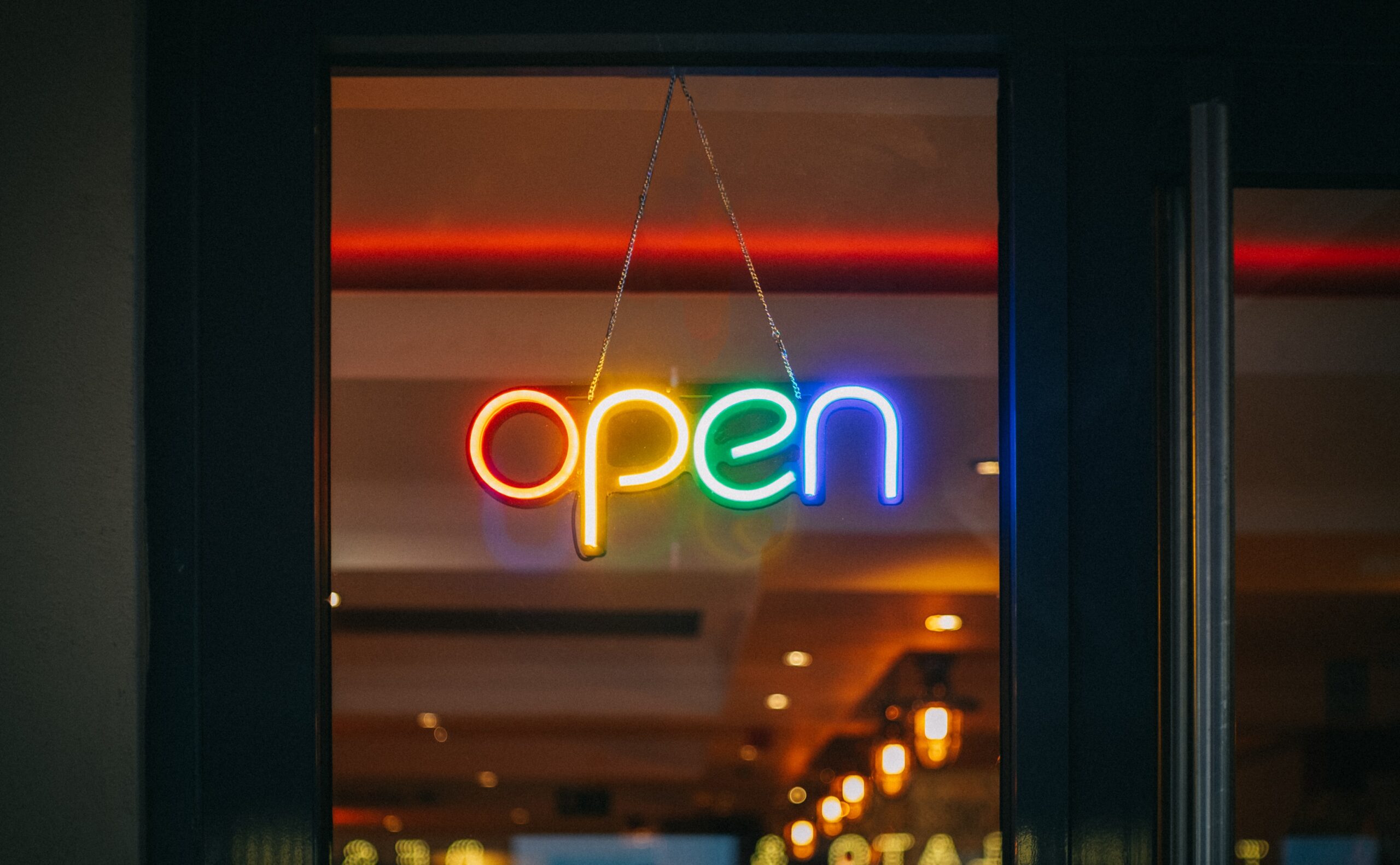
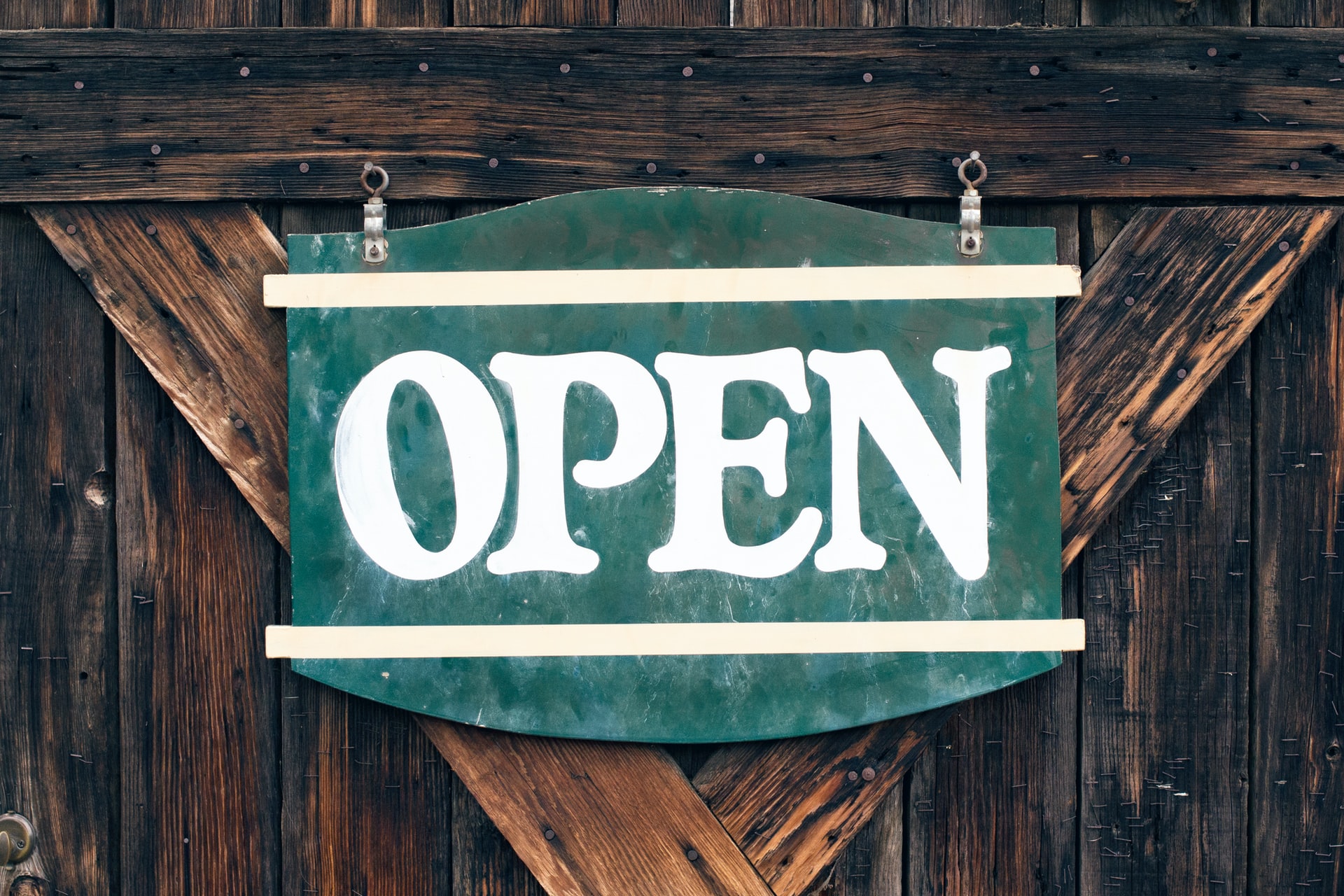
Activity Two
The Visual Lies We Get Told
I knew air brushing was a thing, but this video opened my eyes to the extent of the changes made:
If we saw people in media ‘for real’ what impact, if any, do you think this change would have on body-based struggles?
Activity Three
Let’s Explore Shame
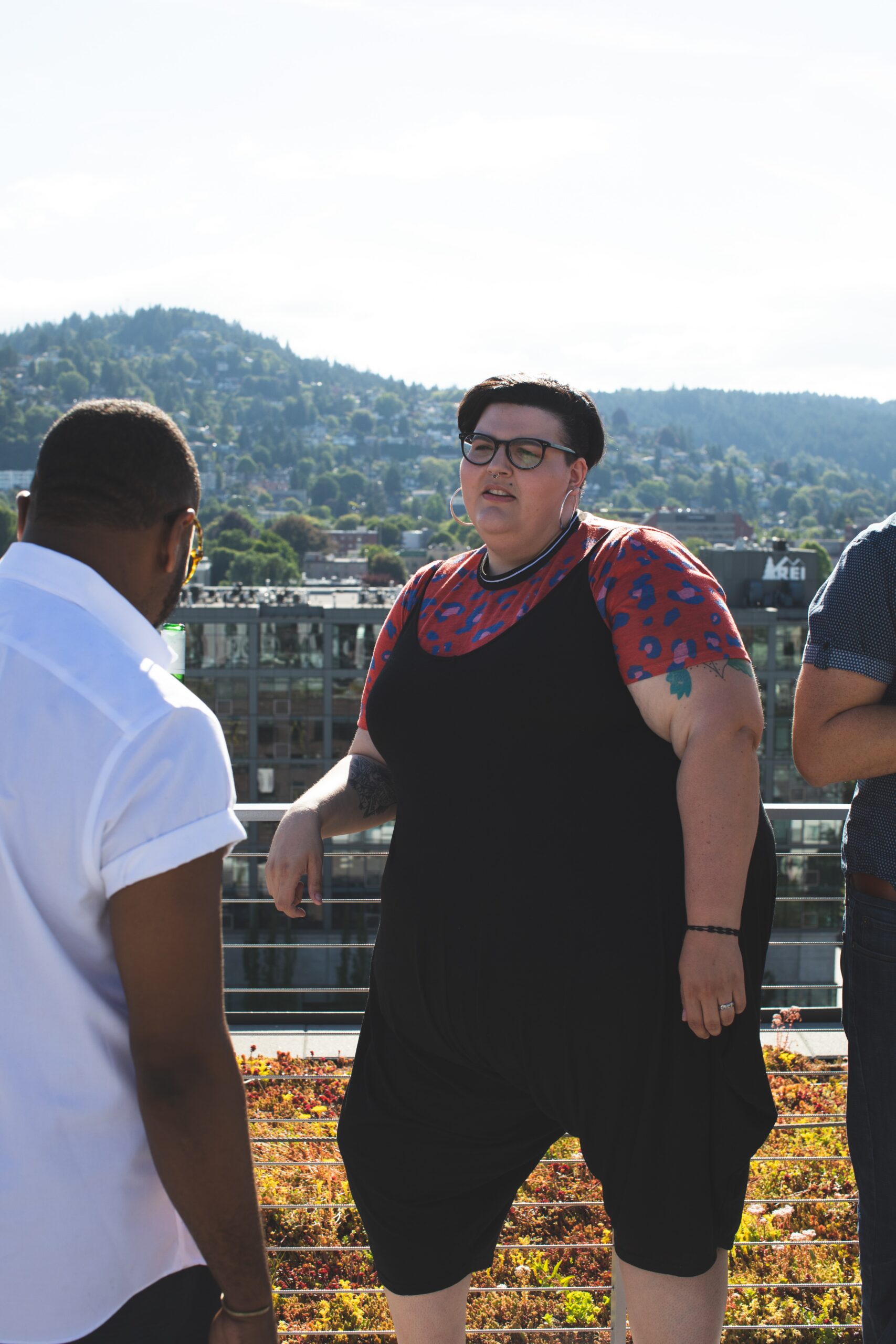
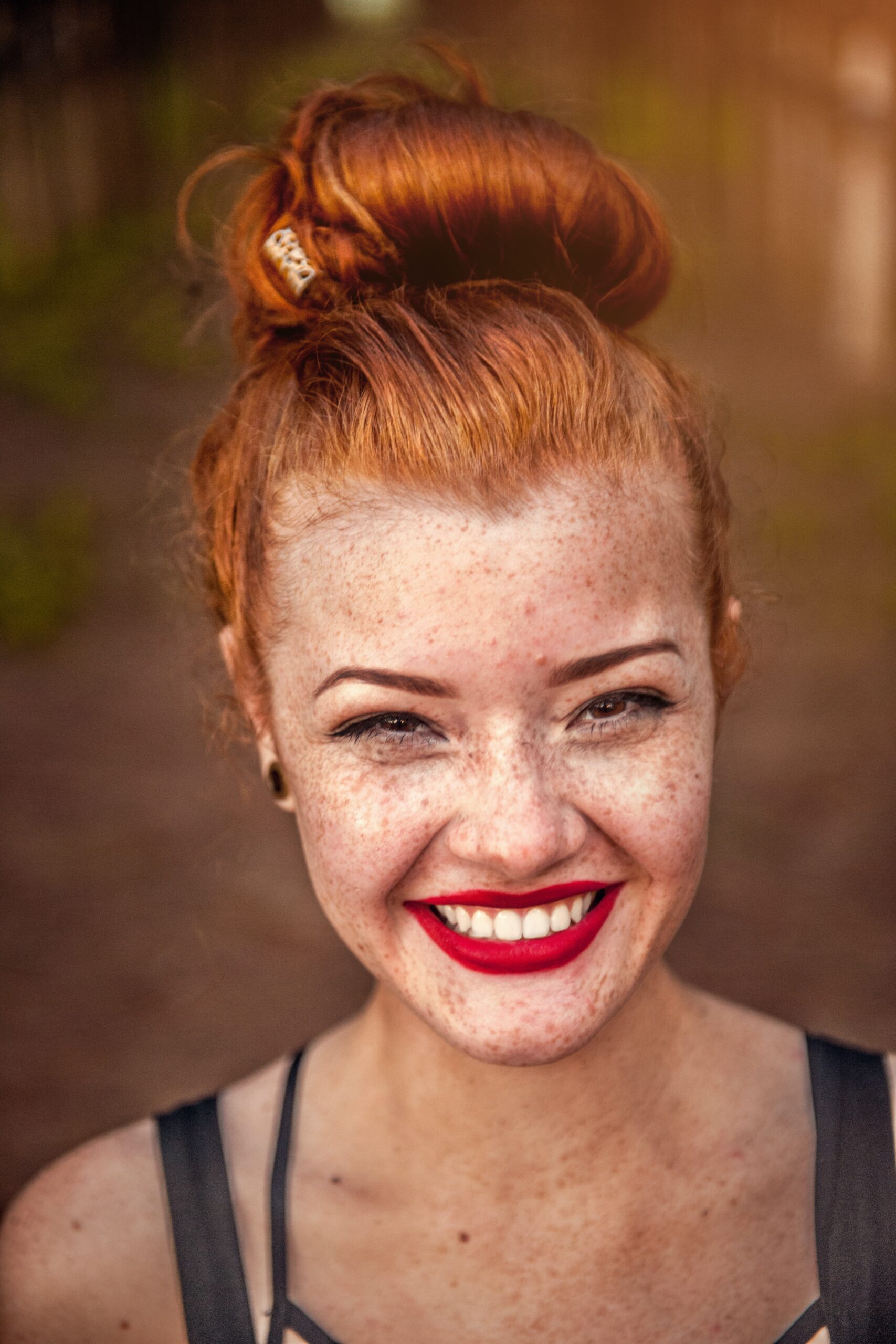
Activity Four
Thinking Through Acceptance
If you were to put a weather icon to your feelings for each of the lessons so far, what they be? Variable is my best guess!
For me, learning – I mean the deep shifting variety, is always a letting go. This means I unlearn an old way of being in the world, an old way of thinking about myself or others, or an old way of organising my thoughts. Gradually I replace this with a new way.
This process is buffered and buffeted by a lifetime’s worth of emotions.
How did it feel to you when you first came across the idea that every body matters and we all deserve respect whatever our size?
Some common emotions in finding body ease, andor learning body respect, and unlearning body shaming beliefs include ~ denial, denial, anger, ambivalence, depression, and acceptance.
- have any of these feelings come up for you over the course? What others?
- if you’ve been told to diet in the past, how do you feel about that now?
- how does it feel to think you have always been ok?
- these five emotions are often used to describe the stages of every day process – do you recognise what this is?
They are from the five stages of grief. These were initially described to help people make sense of their response to death or loss. These were: denial, anger, bargaining, depression, and acceptance.
Since this early work people have added shock to the start of the list, added hope and trust alongside with acceptance, then finished with integration.
Body respect/fat affirmation turns cultural stereotypes about fat and thin on the head. Exploring fat affirmation means untethering ourselves from an entire world view. It’s not surprising people can feel like they’re in shock when they first try and engage with these ideas. If weight has been the one steady feature you have organized your self-worth by, and planned your days around, that’s a big upheaval. 
Questioning fat stigma and revising beliefs about dieting also means questioning belies about science being value-free, and the trustworthiness of experts. I can remember that when I first read the actual research articles quoted in weight guidelines it felt like I was falling without a net. Of course I had taken national guidelines at face value – why wouldn’t I? Suddenly I had to find a different way to practice as a dietitian and I had to overhaul my attitude to science, scientists, and certainty. Unsettling didn’t come close to it!
The stages of grief can be helpful because there is loss – the loss of old ideas, old certainties, old fantasies of being a different size or shape, of life being better once we had changed our eating or weight. It’s a human and healing response – but of course can still be difficult. Grieving is a back and forth process, not a one-off event or straight-line trajectory. Mourning the past can enable us to also reappraise life from an entirely new stance.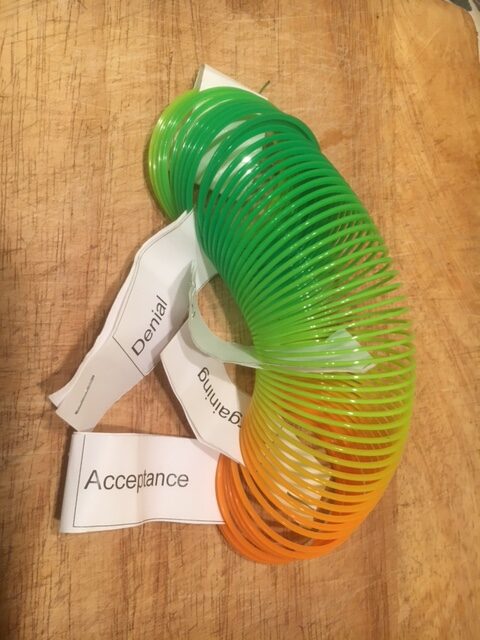
In case this process of grief resonates with you, here’s some (overlapping) ideas that have helped others navigate it:
navigate it:
- staying with denial for a while can help some people cope as they pace themselves into knowing
- support, community, activism
- self expression/meditation
- acceptance and compassion
- time
- turn to your comfort menu
- sacred connection, ritual, spirituality
- this body befriender reminder
- a ‘moving with emotions’ slinky (see image)
- Soothe Sayings e.g. I accept the loss of the old ~ I embrace grief and growth
Activity Five
Being In Our Body
- Sitting quietly, close your eyes if that’s comfortable, and then lift your heart. How does that feel? Does it change how you hold your body?
- Use your fingers to gently massage your scalp, forehead, nose, jaws and ears for 2 minutes. How do you feel after a head rub?
- Sitting quietly place your hand on your heart and feel the warmth of your touch. Breathing gently and deeply into the heart conjure feelings of peace, gratitude, ease, trust. Bring to mind the feeling of trust you get from unconditional love – a friend, partner, pet, wise figure in your life. Sense and savour the feelings you get from being with the memory of safety and love. Once the feeling has seeped in, let the image go and stay with the feeling for thirty seconds.
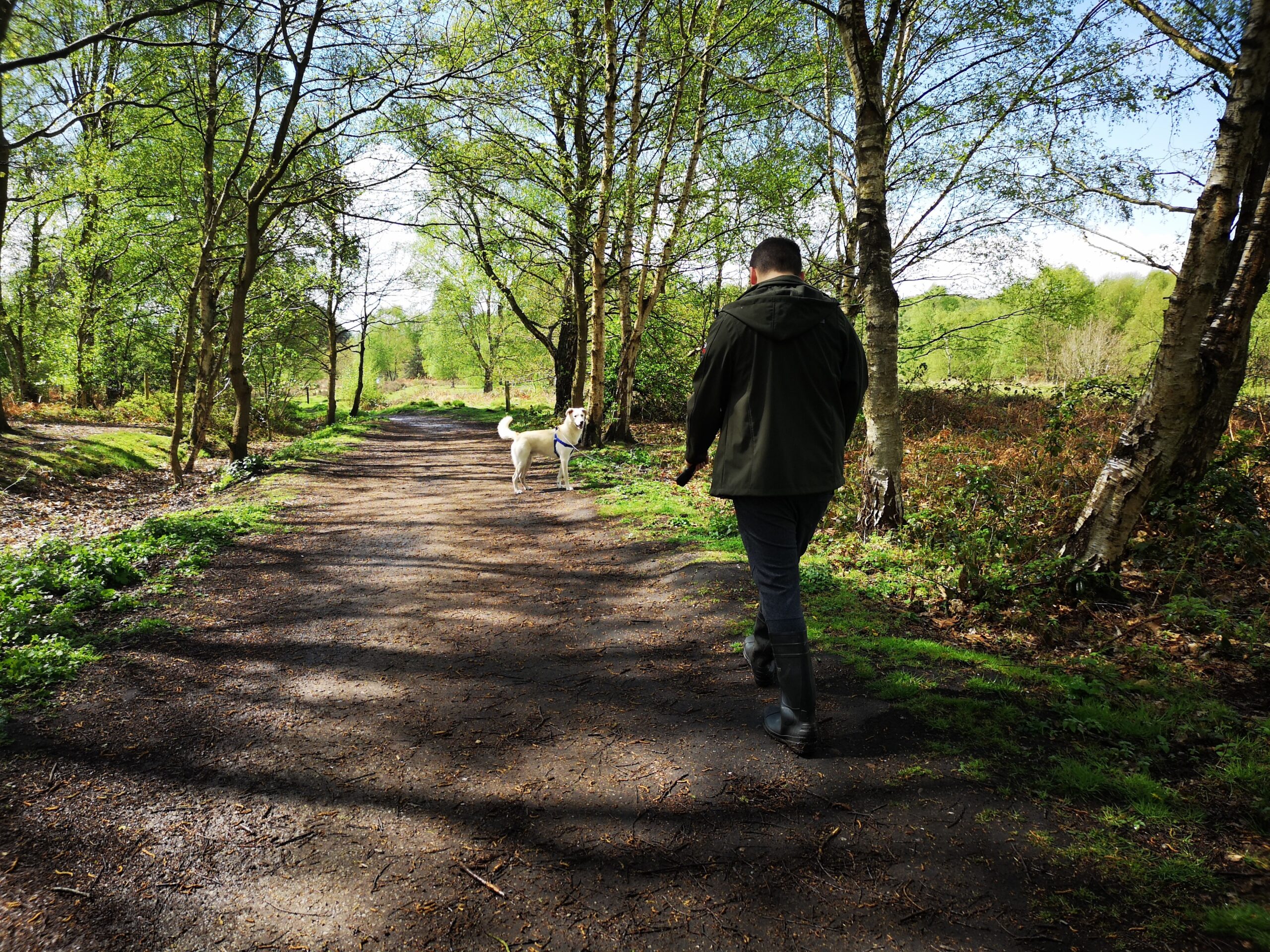
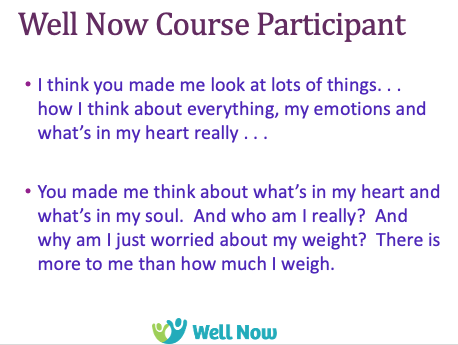
Activity Six
A Letter to Yourself
We’ve covered a lot of topics in a short time. A good way to remind yourself of the depth and range of learning, and to hold on to what feels valuable, is to write yourself a letter.
Ideas to think about include:
➢ what three messages (or more) have had an impact on you? which are the new perspectives that have opened up options on you view things, be it human worth, self-worth, wellbeing, food, discrimination, privilege, thinking etc?
➢ like the Magic Biscuit losing its power, even our most entrenched ideas can shift! Cast your mind back over the 8 weeks to notice where you’ve changed your thoughts, feelings or behaviours. What have these shifts been? How would you like to build on them in future? Are there other old ways you can imagine moving on from? What have you gained, or do you hope to gain from these shifts?
➢ What three things don’t sit quite right for you? are there any areas where you ‘get it’ for a while and then seem to lose your clarity? Is there anything where you are confused, or conflicted, or disagree with Well Now-thinking? Give as much detail as you being, remembering to approach with curiosity and openness.
➢ What have you learned about yourself – your values, what matters to you, how you feel about yourself?
➢ What have you learned about why bodies and eating can be so problematic for people? How can you carry these knowledges with you?
➢ Is there anything you would like to say to your body? Or that your body would like to say to you?
➢ What do you most want to remember from the course? What words of encouragement will help when things are tough? What is it you want to remember thinking or feeling or saying that you can recall to prop yourself up when the spirit of com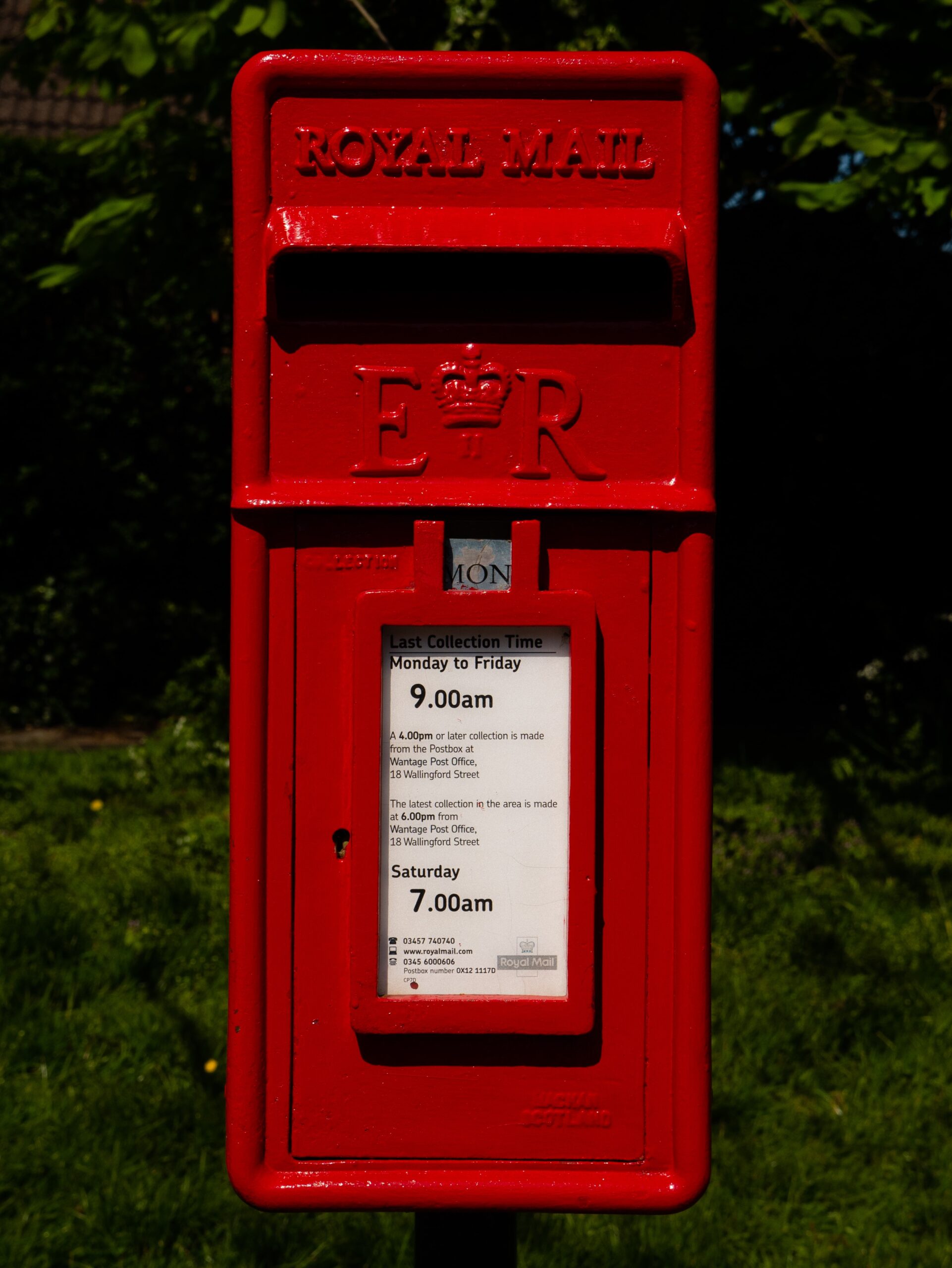 passion seems rather far away.
passion seems rather far away.
➢ What image, phrase or song comes to mind that captures the spirit of the course for you?
Are there aspects of the learning you want to embed? Develop? Revisit?
Can you seal the letter and make a note to post it to yourself in x weeks?
Activity Seven
Go Well Now . . .
Thank you for trusting me. I hold your stories in respect and hope you can too.
May all your teachers and guides reach you from place of humility and wholeness. May you experience connections with people, place, and non-human nature that support you in healing and learning.
May we figure out how to do the inner and collective work that lets us live well together including the work of repair and restoration because harm has been done.
because harm has been done.
May we always be aware of the gift of our own worth and the gift of others’ worth and live from this place.
May we know we belong to the Hallowship of Beings.
